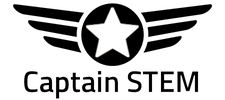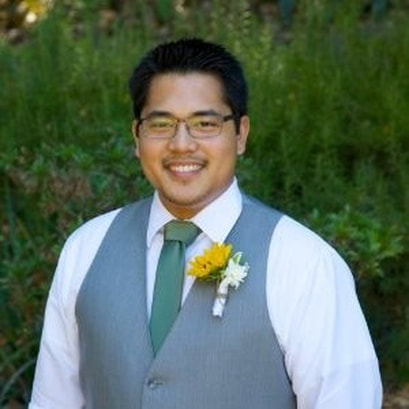Nereo Alvarez, Aerospace Micropropulsion Engineer
|
Nereo Alvarez is an Aerospace Engineer in a small company that specializes in cutting-edge research on electric propulsion systems for spacecraft. As part of the Micropropulsion Group, he provides engineering support and some project management for the technological development of various electrospray thrusters.
|
Education
|
BS in Aerospace Engineering
|
How did you end up in this role?
|
I had a nontraditional path through education. I spent five years at my local community college fumbling around trying to define a career I'd like to pursue. Eventually, I figured that I liked planes and rockets enough to design them for a living. I performed decently well in Elementary Algebra, but began to struggle when the concepts became more abstract. I barely passed Pre-Calculus in community college and failed my first attempt at Calculus I and first-term Physics.
After some self-reflection, I realized that my biggest issue was work ethic and focus. Classes weren't all of a sudden easier just because I decided to work harder. I still struggled through lessons, but I stopped being frustrated if I didn't understand them immediately. The most helpful word I began to use frequently was "yet". "I don't understand it yet" was the most powerful phrase I used because it constantly reminded me that the determining factor between my success and failure was my own willingness to put in the time and effort needed for me to understand the concept. It took over a year to overhaul bad habits and change to a growth-type mentality to achieve a respectable level of success in school. Fortunately, I was able to sort those out by the time I entered my upper division courses in my Aerospace Engineering program. "It took over a year to overhaul bad habits and change to a growth-type mentality to achieve a respectable level of success in school."
Like most of my peers, I struggled to find that first job in the Aerospace industry after graduation. Luckily, I was able to land a job as a Mechanical Engineer for a manufacturing company within a month or two of graduating. I was, understandably, disappointed that I wasn't out there designing rocket nozzles or using orbital mechanics to design a satellite's trajectory to some exoplanet. After a year in that role, I was able to leverage my experience from my Senior Capstone Project and was offered a full-time engineering position at my current company to work on spacecraft propulsion! I was ecstatic that I was finally working on something that had to do with space, and that the knowledge I gained about metal fabrication from my previous job was relevant. However, those early struggles with foundational courses came back to haunt me during my first few weeks in my role: Research environments require a strong understanding of first principles, exactly the courses I struggled to pass. Today, these struggles still exist, but now they are simply "professional challenges," which I can overcome by doing research, as opposed to stemming from a lack of preparation.
|
A day in the life
|
My responsibilities encompass a wide range of components of the technology development process. I'm typically responsible for the complete progression from design concept to data reporting.
It usually begins with a requirement: we need "x" part to do "y". At that point, I calculate some first-order approximations to get an idea of important things like how the part should be shaped and what it should be made of. Then, I generate a computer model using a Computer-aided Design (CAD) software. After the part is made, I design experiments to verify that it does indeed meet the requirements we need. This is the fun part where I get to work in large vacuum chambers with abundant mechanical and electrical instruments like moving arms and tools that collect charged particles! It's also important at this stage that I set up my software to automatically move these arms or collect the data while I'm not in the laboratory: some tests take days, and even weeks, to complete. Finally, I turn the data into useful information by presenting it to my team so we can discuss how it does or does not help our thruster system. Sometimes we test individual pieces of a thruster, and sometimes we test the entire thruster assembly itself. The goal is always to look at what we can do to improve its performance. How can we make it more controllable? What is that odd looking mark we see? Why is it not acting the way we expected? These questions, and those like them, are always asked and help us move the technology to a point that it can be useful to mission planners around the world. |
Advice for aspiring students
|
If you are deterred from pursuing a career in STEM because of how difficult the math, science, or engineering classes are, don't be. Most of my peers worked hard to understand the lessons just like me. There were only a handful that were able to coast through the program while putting in, what seemed to be, minimal effort.
Being a professional requires more than technical proficiency. Work on your soft skills. That is, understand how to talk to people, relate to them, and convey information properly. As an engineer working within a team, you will be responsible for presenting data from your study or findings and it will have to be in an easily digestible format. Otherwise, the critical information could be lost, or never deduced. If you are interested in electric propulsion (EP) for spacecraft, it is a very niche and complex field that requires understanding of aerospace, mechanical, and electrical concepts to design/test/build. Most of my peers inside and outside of the company have an Aerospace/Mechanical Engineering or hard science background, those with prominent roles typically with an MS or Doctorate as well. However, that is not to say that one cannot have a career and succeed in EP without a graduate degree. Genuine interest in the technology will help immensely when wading through the wealth of unconsolidated information on EP. The best, or at least the easiest, way to learn about the technology is to enter a graduate program that provides opportunities to perform hands-on work in a laboratory setting. If a graduate degree is not an option, an alternative is to join said labs as an undergraduate assistant and gain experience there. If even that is not available to you, make your own project! Work hard and pave your own way. I assure you that it will pay off, even if it's in ways you didn't plan on. |


